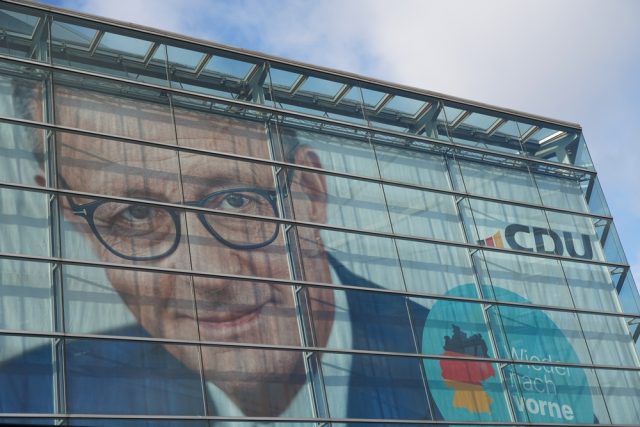
One of the major events of February for the European Union and its member states was certainly the election round in Germany. The Germans went to the polls en masse, with the percentage of eligible voters reaching 84%. An election that showed us a nation still divided between East and West. In fact, several analysts noted a strong geographical discrepancy in the voting trend: in particular, East Germany – reunited with the rest of the country after the fall of the wall in 1989 – voted in the majority for AFD (Alternative für Deutschland), while the West sided with Friedrich Merz’s CDU. Indeed, Merkel’s former party won the elections, despite having to – as usual – build a coalition to govern. It does not go unnoticed that this process of building a government will also be influenced by the international situation. Especially after the meeting in the Oval Office between Donald Trump and Volodymyr Zelensky.
WHO WINS AND WHO LOSES
If the CDU is the formal winner of the electoral round in Germany, the data must be analysed more precisely to understand the scenario in which Friedrich Merz is moving in the construction of the new executive and his search for government allies. The real surprise (although for several analysts and think tanks it would be a confirmation) is to be found in the incredible result scored by the AFD. According to the data, one in five voters in Germany opted for Alice Weidel’s party (with 19.7% of the vote), making the extreme right-wing formation the second largest party in the country. Sixty-nine-year-old Friedrich Merz returned to politics – he had walked away from it in 2009 – and obtained an expected result against Olaf Scholz, but not a foregone conclusion in terms of numbers. In fact, the ballot box gave the CDU 28% of the votes. The real losers in this round are Scholz’s Social Democrats with whom, however, Chancellor in pectore Merz cannot avoid negotiating.
GOVERNMENT SCENARIOS
Merz will now have to put together all the necessary steps to achieve a majority in parliament in order to be able to govern. Of course, the path of negotiations is rather easy to guess, if not already largely marked out: sitting down at the table with Olaf Scholz is indeed the obligatory choice. Finding a political square with allies that came out the losers of the previous ‘traffic light coalition’ will not be easy, especially on issues such as immigration and environment. In fact, Merz has very different ideas on these issues compared to the current chancellor. However, these differences are unlikely to make the negotiations fall apart, also because it will instead be easy to find a compromise on defence issues and support for Ukraine in the conflict with Russia.
EUROPE RETURNS TO DECISION-MAKING
From the point of view of the EU institutions, it is certainly worth noting that the anticipation of the German elections had made itself felt. Many key proposals were delayed in order to await the outcome of the polls and see whether they would have had Berlin’s support. Although the focus in Brussels is on looking at states and not elections, it is undeniable that Olaf Scholz’s support could not be taken at face value, particularly on key and sensitive issues such as common defence and policies to support Ukraine and sanction Russia. Especially in an international scenario as changeable as the one of recent weeks. After the elections and the outlined political situation in Berlin, the European Union has gone back to planning important and cogent appointments for the future of the Union and its Member States. In particular, an Extraordinary European Council on Common Defence has already been called for March 6th in order to reach a shared understanding among the Member States on support for Ukraine, especially after the new positions taken by the overseas allies. It is clear that at the next Council it will still be Olaf Scholz who will sit on the seat reserved for Germany, but he will certainly present himself to the other leaders with a position already largely agreed upon with the chancellor in pectore.



 Subscribe
Subscribe